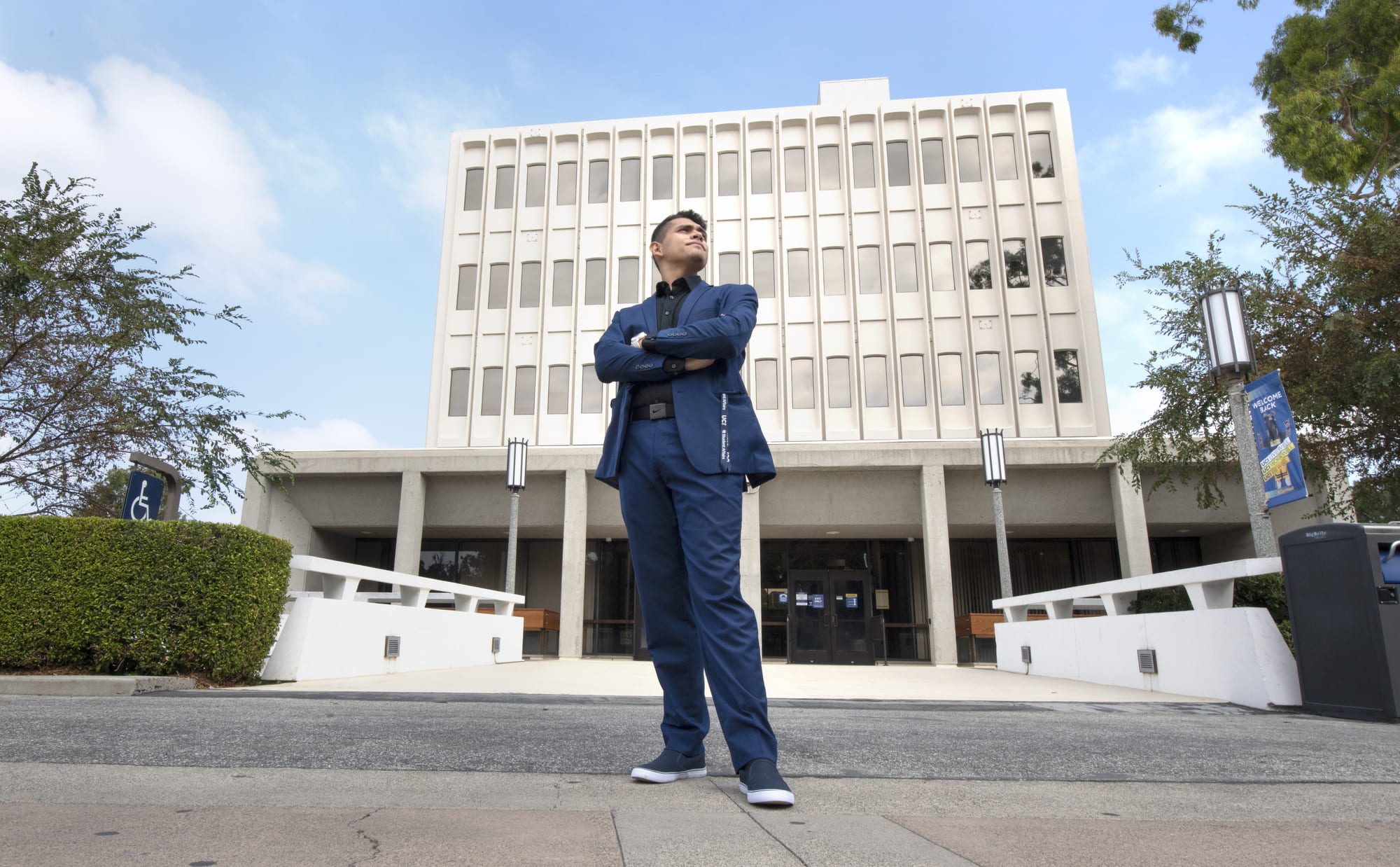Family medicine turns 50
Gala marks anniversary, evolution of UCI department, only the second established in the state

Current and former chairs, faculty and staff, as well as alumni, convened last month in the UCI Student Center’s Pacific Ballroom to celebrate the Department of Family Medicine’s 50th anniversary. The School of Medicine unit has, over those five decades, trained more than 400 residents, many of whom were also in attendance at the gala, including the first graduate, Dr. Ben Wright.
In a brief address, Dr. Robert Rakel, one of the fathers of family medicine and founder of the UCI department, recalled the struggles he and colleagues endured to establish one of the first family medicine residencies in the entire country. “Many of us felt like Sisyphus,” he said, referencing the Greek mythological figure condemned to an eternity of rolling a large boulder up a steep hill. “We kept getting somewhere but not nearly close enough to real recognition in family medicine.”
After much perseverance by advocates, the American Medical Association finally approved family medicine as a specialty in 1969, and Rakel created the second family medicine department in California at UCI. The AMA designation legitimized a practice that was once seen as overly general and, therefore, unworthy of prestige.

UCI Department of Family Medicine
Family medicine, “although essential to efficient systems of medical care throughout the world, was not looked upon as specialty care even though the primary care specialties of internal medicine and pediatrics were accepted,” says Rakel, who co-wrote (with his son) the classic Textbook of Family Medicine, now in its ninth edition.
Rather than focusing on any specific organ or disease, a family practitioner looks at the big picture: the patient as a whole, whether a child or adult; the family unit; and the community, including the underserved and at-risk. This humanistic, comprehensive and preventive view of health sets family medicine apart from other specialties and has turned out to be its greatest asset.
“Family medicine is one of the last renaissance professions,” says Dr. Johanna Shapiro, a member of UCI’s family medicine faculty for 41 years and director of the School of Medicine’s Program in Medical Humanities and Arts. “It enables you to understand both sides of things – the technical and the human – and for that, the field is now receiving respect, an awareness of the important role it plays in healthcare.”
Community members often neglected by society are at the forefront of family medicine. Dr. Lisa Gibbs, chief of the UCI department’s Division of Geriatric Medicine & Gerontology, told those at the anniversary celebration that by 2040, people over 65 will make up 20 percent of the Orange County population – the only age group increasing in the area. She said that the county needs 150 geriatricians. Currently, there are 50, and half of them will retire soon. The division, Gibbs noted, aims to help the elderly population “age in place.” Its compassionate approach is particularly evident in the unit’s Center of Excellence on Elder Abuse & Neglect, which is nationally recognized for its medical, forensic and victim services for abused and neglected older adults.
The Department of Family Medicine’s three-year integrative medicine residency track equips future physicians with a holistic framework that integrates the best of Western scientific medicine with a broader understanding of the nature of illness, healing and wellness to facilitate the body’s innate healing response.
“Sometimes that may indeed be pharmaceutical, surgical or conventional care. Sometimes it’s more concentrated on nutrition, exercise, improved sleep and healthy lifestyle changes,” said Dr. David Kilgore, director of the integrative medicine residency track, during a presentation at the event. “And sometimes it’s just a muddy mixture of using what’s most effective and successful with the least side effects, risks and costs, and that’s often a blend of the best of conventional care along with nutrition, herbs, supplements, etc. It turns out our patients in underserved communities need that balance, need that full toolkit of care more than anybody.”
The mission-driven Program in Medical Education for the Latino Community, a five-year M.D./master’s program and residency track in the Department of Family Medicine, produces a network of passionate physician-activists committed to working in underserved Latino populations. Dr. Jeffrey Arroyo, a recent PRIME-LC residency graduate, also spoke at the anniversary gala. “Our patients are at the center of everything we do in family medicine, and part of caring for our patients is thinking about their community and where they come from and how it can positively and negatively affect their health,” he said, emphasizing that the program attracts people who want to advance healthcare in the clinic and the community.
Family medicine resident So La Lee, who aspires to provide high-quality, affordable and holistic care in geriatrics, women’s health, addiction medicine and medically underserved locations, says she chose the specialty because she saw the need was great.
“Many patients go to the hospital for emergency issues that could have been addressed at the root cause, and primary care works to address that,” Lee says. “To see the importance of this along with caring deeply for the whole patient in the midst of their complex social situations left an impression on me.”
Before joining the department, Shapiro was a behavioral scientist who would see patients dealing with painful issues that were both psychological and physical, a phenomenon often encountered in family medicine. Now she teaches medical students to use the humanities and arts to develop empathy and strengthen their patient relationships, with a focus on complicated, stigmatized and culturally diverse populations.
“Now there’s more recognition of the fact that family medicine is dedicated to the underserved and important to contemporary society,” Shapiro says. “The department has also grown enormously in areas of specialized expertise: geriatrics, sports science, integrative medicine – none of these existed when I started. We’ve had a great evolution.”

